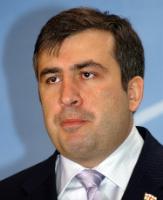Public unrest in Tbilisi earlier this month has disturbed the friends of Georgian President Mikheil Saakashvili. Since Saakashvili's ascent to power during the peaceful Rose Revolution in November 2003, Western nations have touted his government as a beacon of democracy in the South Caucasus. Indeed, over the last four years, Saakashvili's cabinet has reined in corruption, improved tax collection and reportedly increased tax revenue six-fold. Undemocratic Actions Yet, these breakthroughs notwithstanding, Saakashvili's popularity is on decline. Public discontent with his governing practices erupted after the Sept. 27 arrest and alleged torture of the former defense minister, Irakli Okruashvili. Saakashsvili dismissed Okruashvili a year ago on the grounds of abuse of authority, money laundering, and extortion. Last September, the erstwhile minister broke his yearlong silence and accused the president of corruption and plotting assassinations of his opponents. He was then arrested for 10 days and released after paying a hefty bail. The televised tape of his interrogation -- in which he withdrew his charges against Saakashvili -- enraged the members of the opposition who felt that the authorities coerced a confession out of Okruashvili. The opposition insisted on the examination of the ex-minister's medical condition by international experts.
Following Unrest, Georgia Looks Ahead to Crucial Elections Next Year

